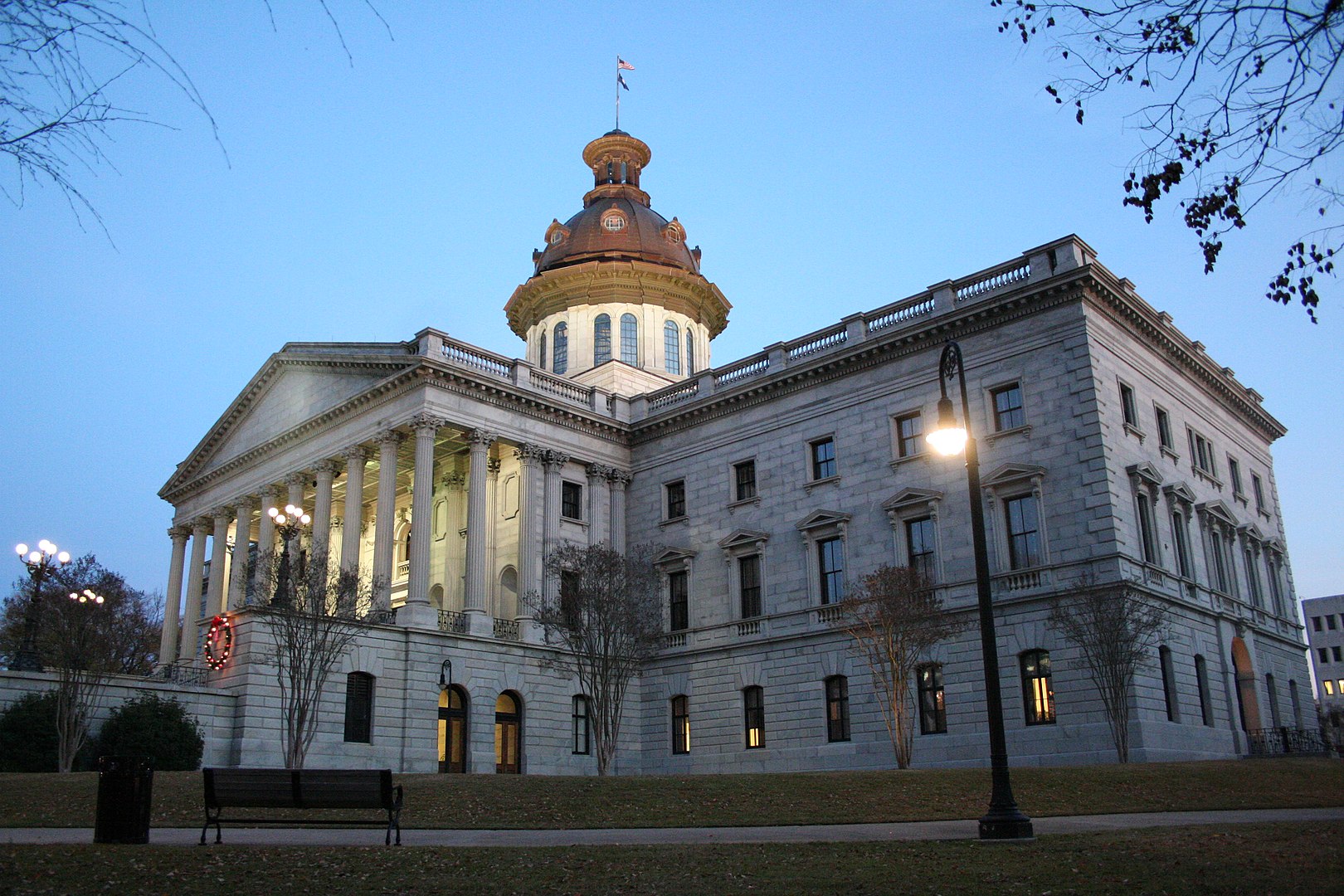CHARLESTON, S.C. (CN) — The South Carolina attorney general and other officials say the state’s opaque judicial selection process needs to be reformed, arguing too much power is concentrated in the hands of influential lawyer-legislators.
Some members of the Judicial Merit Selection Commission have used their authority as a cudgel to disqualify judges seeking reelection, officials say, punishing members of the bench who rule against them in cases.
Others argue the current judicial selection process is outdated. South Carolina is one of the last states in the country where the Legislature elects most judges, a process that contributes to a less diverse judiciary and weaker checks and balances, opponents argue.
"I've heard great ideas from every corner of the state about judicial reform, and they are all better ideas, in my opinion, than what we have now,” First Circuit Solicitor David Pascoe said.
The criticisms came at a press conference held this week in Columbia. South Carolina Attorney General Alan Wilson was joined at the event by a bipartisan coalition of solicitors and sheriffs calling for new laws to reform the Judicial Merit Selection Commission.
The outcry comes on the heels of a controversial decision by the South Carolina Supreme Court to strike down a ban on abortion after about six weeks, arguing the law violates a state constitutional right to privacy.
Republican Governor Henry McMaster called for gubernatorial appointment of judges in his State of the State address, arguing that the high court’s ruling on the so-called fetal heartbeat law was “at odds with law and facts.”
Meanwhile, the highly publicized trial of Alex Murdaugh, a former attorney convicted of murdering his wife and son, has shed an ugly light on the sometimes overly cozy relationship among the state’s judges and attorneys.
Murdaugh admitted on the witness stand he stole millions of dollars from former clients in a scheme that continued for more than a decade, raising questions about how he was able to hide the thefts from the court officials responsible for administering the cases.
State Representative Joe White, who introduced two judicial reform bills this week, said the Murdaugh case was an example of how influential legislators and powerful attorneys can bend the system to their own selfish ends.
The 76-year-old Republican from Newberry is the state’s oldest freshman lawmaker. He said he grew up believing the government was for the people and by the people.
“I’ve been out here three months and I now know that the government in South Carolina is of the powerful, by the powerful and for the powerful,” he said.
A reform-minded commission
The Judicial Merit Selection Commission is a 10-member body responsible for screening judicial candidates seeking election by the Legislature to serve on most of the state’s courts, including the Supreme Court and the 16 circuit courts, which handle the bulk of civil and criminal cases.
Created in 1997, the JMSC is itself a product of reform. For decades, the Legislature had used its elective powers to ensure its own members could comfortably retire in the black robes.
Sixteenth Circuit Solicitor Kevin Brackett said in the early 1990s, nearly every judge was a former legislator. It was a well-known secret that the only way to get a seat on the bench was to run for the Legislature or find a powerful lawmaker who could whip up enough votes to elect an outsider.
“What are the odds that — in a state with thousands of lawyers — the best people to be judges would be former legislators?” he mused.
A constitutional amendment established the commission while also prohibiting sitting lawmakers from running for judgeships. Five of the commission’s members are appointed by the House and five by the Senate. Of its 10 members, four must be non-legislators.










